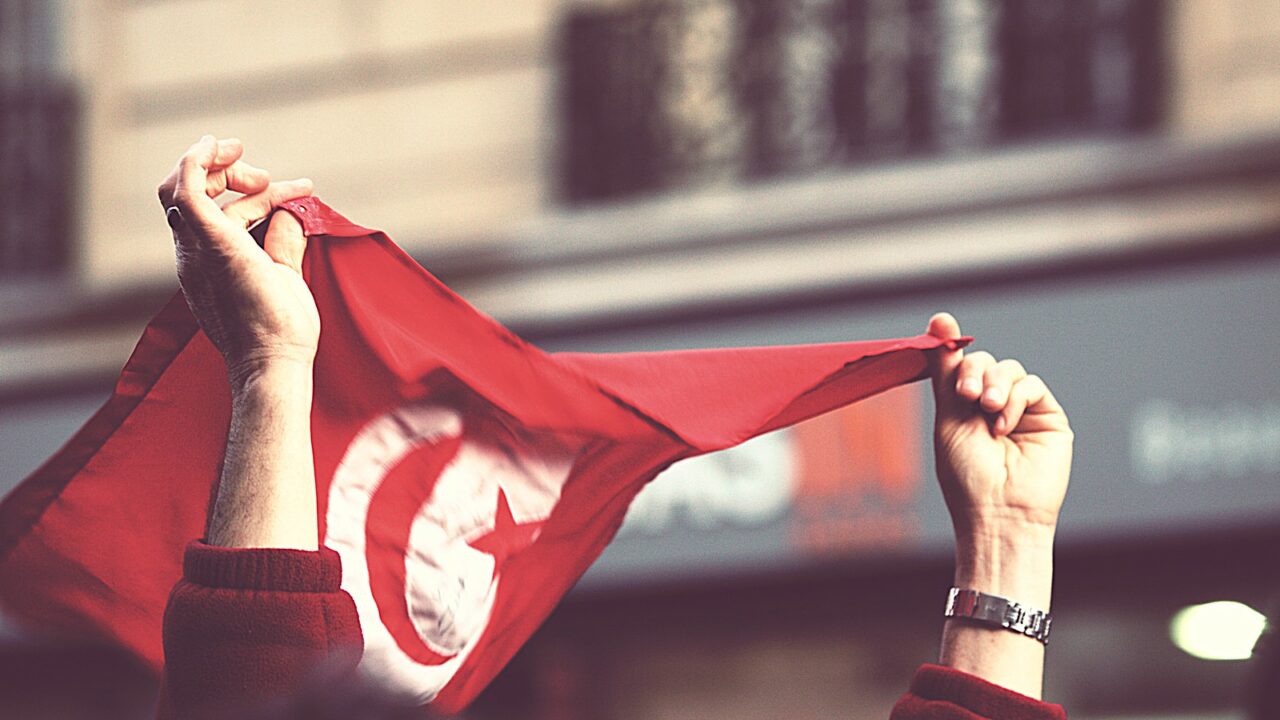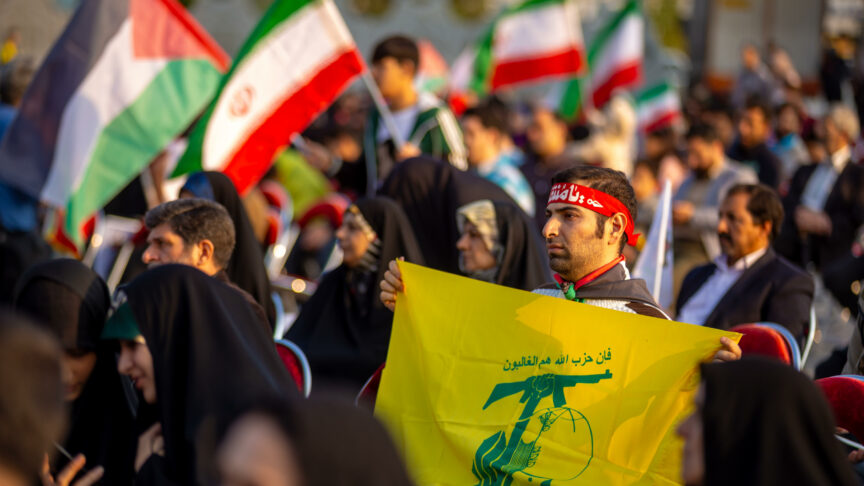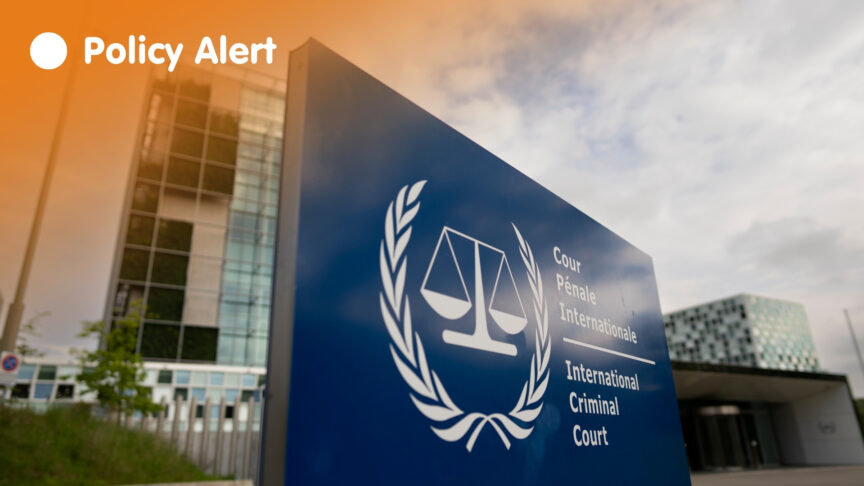Caught in transition: Tunisia’s protests and the threat of repression
As economic hardship and political infighting persist in debt-laden Tunisia, the EU should raise its concerns about the escalation of violence in the country and work to prevent it from sliding back into repression
Social protest has been a recurrent feature of Tunisian public life in recent years, but the demonstrations now under way in the country are more serious than in preceding years because of their timing and circumstances. The country is reeling from an outbreak of covid-19 that weakened its already-frail economy. At the same time, political infighting has made it impossible to decide on and implement much-needed systemic reforms. Finally, the protests and the harsh security response have coincided with the ten-year anniversary of the Jasmine Revolution, which has increased tensions on all sides and increased the risk of escalation.
While there is little that Europe can do in the short term to help with Tunisia’s economic woes or its political dysfunction, the latest crackdown should prompt the European Union to refocus on the country’s security issues. The EU has the leverage to call out state repression. In the longer-term, the bloc should make a greater effort to help Tunisians reform the security sector.
Persistent protests
The protests began in mid-January 2021. They originated in poor suburbs in Tunis but quickly reached other cities. The demonstrators are primarily concerned about their long-term economic woes – including high unemployment, poverty, inequality, stagnation, corruption, and the high cost of living – as well as state repression and a recently announced lockdown.
The police cracked down on the protests immediately. Some of the demonstrations have been violent, as some protesters looted shops and banks, blocked roads, attacked public buildings, burned tires, and shut down businesses. In Tataouine governorate, protesters tried to blockade an oil pipeline in El Kamour but the army prevented them from doing so. The harsh security response – which involved the use of water cannons, barricades, and arrests – triggered further unrest. As a result, Tunisia is seeing violent clashes between officers and protesters reminiscent of the Jasmine Revolution.
While this civil unrest is largely motivated by familiar economic grievances, it was catalysed by the prime minister’s announcement on 14 January 2021 of a four-day total lockdown. The authorities said that the lockdown was designed to control the spread of covid-19. However, some protesters argued that this was likely part of an attempt to avoid protests given that it coincided with the ten-year anniversary of the revolution. The ensuing unrest was fuelled by the police crackdown on the first protests, which the demonstrators fear is endangering their post-2011 freedoms.
Economic grievances
The protesters’ economic grievances have remained the same for the last decade, as the government has been unable to address the socioeconomic roots of the 2011 uprisings. Tunisia’s economic outlook is even worse than it was a decade ago, as the frailties of its economy have been exacerbated by the coronavirus pandemic.
Indeed, the ensuing lockdown has led to economic contraction, heightened unemployment, higher prices, increased poverty, slower production, and diminished state resources. The government has created measures to mitigate these problems – such as tax holidays, one-off cash transfers to workers in the informal economy, and support packages for vulnerable groups – but administrative obstacles and Tunisia’s economic realities hinder the implementation of many of them. Indeed, the country’s persistently high fiscal deficit grew to an estimated 11.5 per cent of gross domestic product in 2020. Unemployment, which remains a major trigger of protests, was higher in 2020 than it had been for the previous seven years, reaching 16.3 per cent in the third quarter of the year.
The recent popular discontent is tied to a call from the International Monetary Fund (IMF) for the Tunisian government to control the budget deficit by cutting spending on wages and subsidies, and by restructuring state-owned companies. The Tunisian minister of finance announced that he would follow the IMF’s advice, while state-owned media outlets reported that the government planned to reduce public sector working hours as a way to decrease its spending.
Political infighting
Tunisia’s difficult economic situation has been further complicated by severe political infighting, which has paralysed the political process. Ideological differences within the deeply fragmented parliament, as well as between the president and government leadership, make it difficult to reach a political consensus on systemic reforms.
Most recently, there has been rising tension between President Kais Saied on one side and Prime Minister Hichem Mechichi and parliament speaker Rached Ghannouchi on the other. Ghannouchi, who is the head of the self-defined ‘Muslim democratic’ Ennahda party, seeks changes to Tunisia’s constitution and electoral law that would give it a fully parliamentary political system. Accordingly, the party that wins the highest share of the vote in a parliamentary election (as Ennahda did in the 2019 and 2011 elections) would have total executive authority and would appoint the prime minister. Ghannouchi’s proposed changes would make the presidency a symbolic role.
Additionally, the president and the prime minister have been fighting for control over key ministries since September. The dispute between the two has peaked since 16 January, when Mechichi proposed a cabinet reshuffle without consulting Saied. The president objected to the appointment of several ministers and refused to swear them in, saying that they were accused of corruption and conflicts of interest. Parliament’s approval of the reshuffle on 26 January raised the prospect that Saied might move to dissolve parliament, or that the pro-Mechichi parliamentary camp might try to remove Saied from office. On 15 February, Mechici tried to end the deadlock by dismissing five ministers and temporarily entrusting their duties to other members of the government.
Tunisia’s political infighting is also complicated by the involvement of the powerful Tunisian General Labour Union, which is aligned with Saied and opposes Mechichi’s pledge to sell state companies.
Future prospects
As the security forces clash with protesters, there is a risk that the crackdown – which has involved arbitrary arrests, raids on homes, and police violence – will become more extreme. So far, the authorities have arrested more than 1,400 people, 30 per cent of them minors, and there has been one death. Some of the detainees are journalists, raising concerns about freedom of expression and censure. In the short term, the crackdown could create a feedback loop of violence in which increased repression prompts further protests, which could trigger more repression, and so on. There is also a risk of a slide back into long-term repression.
To ease these tensions, the government will have to urgently rein in the security forces. And Tunisian political leaders – especially the prime minister – will have to address the recent incidents of police violence. Firstly, they will have to make a clear public declaration that police brutality is not permitted. Secondly, they will have to follow through on promises to impartially investigate the abuse, including the death of Haykal Rachdi. The government will have to also order the security forces to stop using teargas excessively or indiscriminately. Reining in the police will be difficult given that security forces are backed by powerful unions. However, in the long-term, Tunisia needs to reform the security state.
European policymakers have the leverage they need to criticise police repression in Tunisia
Europe, a top financial and political supporter of Tunisia’s transition, can help the country address its security issues. Tunisia has received the most EU support per capita of any third country. Cumulatively, this support amounted to €1.9 billion in aid and €800 million in loans between 2014 and 2020. Despite domestic criticism of the conditions attached to the EU’s financial assistance (such as austerity measures), Tunisia’s economic weaknesses continue to make it reliant on European aid. Furthermore, under the European Neighbourhood Instrument, a priority sector for EU bilateral assistance to Tunisia is promoting good governance and the rule of law. Therefore, European policymakers have the leverage they need to criticise police repression in Tunisia.
The EU can also help Tunisian decision-makers develop a realistic security reform plan by launching a strategic and inclusive partnership around security cooperation that could benefit both parties. Through such a partnership, the EU could provide Tunisia with security training – as member states such as France and Germany have – while promoting talks about security sector reform. Importantly, such a partnership should involve not only government officials but also civil society actors.
The European Council on Foreign Relations does not take collective positions. ECFR publications only represent the views of their individual authors.



